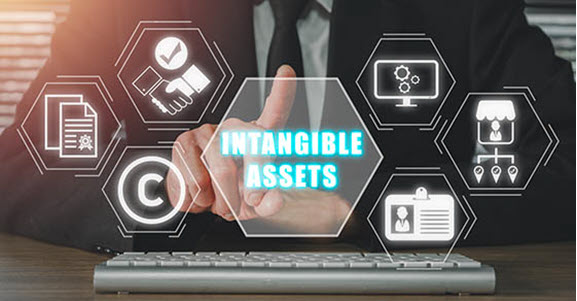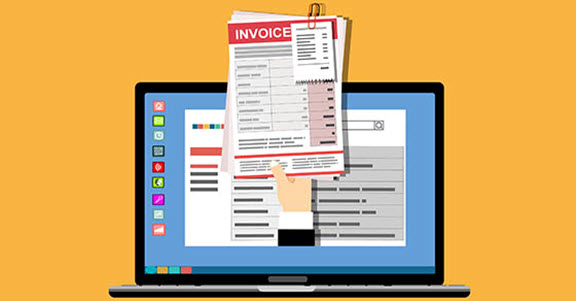Intangible assets, such as patents, trademarks, copyrights, and goodwill, play a pivotal role in the success of modern businesses. However, the tax treatment of these assets is notoriously complex, often leaving business owners searching for clarity. This guide answers frequently asked questions and provides insights into navigating the tax implications of intangible assets effectively.
What Are Intangible Assets?
Intangible assets refer to non-physical items that hold significant value for businesses. These assets include:
- Patents
- Trademarks
- Copyrights
- Goodwill
- Customer lists
- Financial derivatives (e.g., options, futures contracts)
- Memberships and licenses
- Franchises and trade names
Determining whether a specific item qualifies as an intangible asset for tax purposes often requires a detailed analysis of its characteristics and intended use.
What Are the Typical Expenses Associated with Intangible Assets?
When acquiring or creating intangible assets, businesses may incur expenses that are subject to IRS capitalization rules. Examples include:
- Licenses and Agreements: Fees to obtain, renew, or renegotiate business or professional licenses.
- Contract Modifications: Costs to modify lease agreements or other contract rights.
- Legal Defense: Expenses to defend or perfect title to intangible property, such as patents.
- Agreement Termination: Costs to end leases, exclusive licenses, or non-compete agreements.
Additionally, expenses to facilitate the creation or acquisition of intangible assets—such as consulting fees, legal services, and valuation assessments—are often capitalized. For instance:
- Hiring legal counsel to draft a lease agreement.
- Paying accountants to establish stock value during a shareholder buyout.
- Engaging consultants to prepare a competitive bid.
Why Is the Tax Treatment of Intangibles So Complex?
The IRS requires businesses to capitalize costs related to:
- Acquiring or creating intangible assets.
- Enhancing an existing intangible asset.
- Creating a “future benefit” specified in IRS guidance.
- Facilitating any of the above transactions.
Unlike deductible expenses, capitalized costs are amortized over the useful life of the asset or a timeframe specified by tax regulations. However, there are exceptions, including:
- Costs not exceeding $5,000.
- Short-term benefits that last less than 12 months or end before the close of the following tax year.
Understanding and applying these rules requires meticulous attention to detail, as even small missteps can lead to costly errors or penalties.
Are There Exceptions to Capitalization Rules?
Yes, several exceptions and elections may apply:
- De Minimis Threshold: Costs under $5,000 are generally exempt from capitalization.
- Short-Term Benefits: Payments for rights or benefits lasting less than 12 months may also be excluded.
- Optional Elections: Taxpayers may choose to capitalize certain costs that wouldn’t typically require it.
Given the intricacies of these rules, it’s essential to review transactions involving intangible assets carefully to optimize tax benefits and maintain compliance.
Why Proper Tax Planning Matters
Effective tax planning for intangible assets ensures businesses maximize deductions and avoid unexpected liabilities. Mismanagement can lead to:
- Overpayment of taxes.
- Non-compliance penalties.
- Missed opportunities for financial optimization.
Frequently Asked Questions (FAQs)
1. What qualifies as an intangible asset for tax purposes?
Intangible assets include non-physical items like patents, copyrights, trademarks, goodwill, and financial instruments. Proper classification is key to determining tax treatment.
2. What expenses are common when acquiring or creating intangible assets?
Legal fees, consulting services, license renewals, and valuation assessments are typical examples of capitalized costs associated with intangible assets.
3. Why are the IRS rules for intangible assets so complex?
The IRS requires businesses to capitalize costs over the asset’s useful life, with exceptions adding layers of complexity. A clear understanding of these rules is crucial for compliance.
4. Are there any exceptions to the capitalization requirements?
Yes, exceptions include the $5,000 de minimis rule and short-term benefits lasting less than 12 months. Taxpayers may also elect to capitalize certain costs for strategic advantages.
5. How can businesses ensure compliance with IRS regulations?
Engaging experienced tax professionals can help businesses navigate the complex rules, ensure compliance, and identify opportunities to maximize tax benefits.
Let Us Help You Navigate Intangible Asset Taxation
Managing the tax treatment of intangible assets requires specialized knowledge and strategic planning. Whether you need assistance in determining the correct classification of assets or optimizing your tax strategy, our team is here to help. Contact us today to discuss your unique needs and ensure compliance with the latest IRS regulations.






